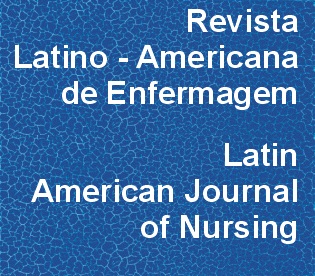Adaptation and validation of the Instrumental Expressive Social Support Scale in Portuguese older individuals
DOI:
https://doi.org/10.1590/1518-8345.2647.3096Keywords:
Validation Studies, Factor Analysis, Statistical, Social Support, Geriatric Nursing, Affect, Medication AdherenceAbstract
Objective: to adapt and validate the Instrumental Expressive Social Support Scale (IESS) in a sample of older people. Method: methodological study. The sample of 964 community-dwelling older people was randomly divided into two groups. The first group was used as a calibration sample to study the number of factors underlying social support through Principal Axis Factoring, and the second group as a validation sample to test the “best fit” model through Confirmatory Factor Analysis. Results: exploratory Factor Analysis suggested a three-factor solution, which was confirmed by Confirmatory Factor Analysis. The factors were similar to those in the preexisting dimensions of the original instrument and were named as Sense of control (α = 0.900), Financial support (α = 0.802), Familiar and socio-affective support (α = 0.778). Confirmatory Factor Analysis showed acceptable fit. The model’s goodness-of-fit indexes were satisfactory (χ2/df = 5.418; CFI = 0.903; NFI = 0.884; RMSEA = 0.098). The convergent validity was supported by associations between social support and medication adherence and positive affect. The discriminant validity was evidenced by association with negative affect. The reliability analysis showed high values of internal consistency. Conclusion: the instrument proved to be a valid measure for the assessment of social support in older people.
Downloads
Downloads
Published
Issue
Section
License
RLAE’s authorship concept is based on the substantial contribution by each of the individuals listed as authors, mainly in terms of conceiving and planning the research project, collecting or analyzing and interpreting data, writing and critical review. Indication of authors’ names under the article title is limited to six. If more, authors are listed on the online submission form under Acknowledgements. The possibility of including more than six authors will only be examined on multicenter studies, considering the explanations presented by the authors.Including names of authors whose contribution does not fit into the above criteria cannot be justified. Those names can be included in the Acknowledgements section.
Authors are fully responsible for the concepts disseminated in their manuscripts, which do not necessarily reflect the editors’ and editorial board’s opinion.



